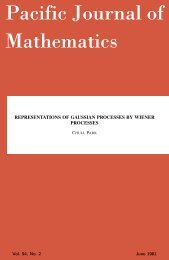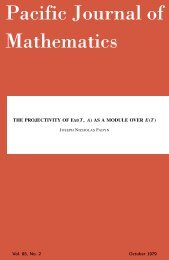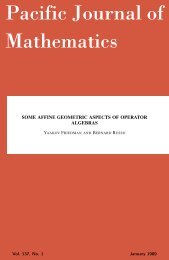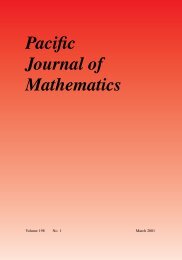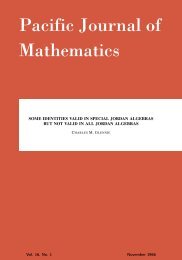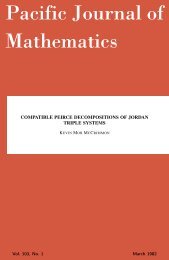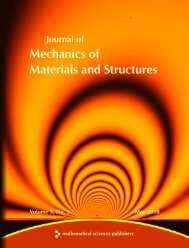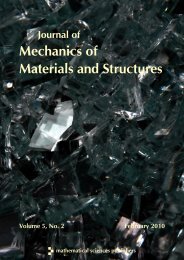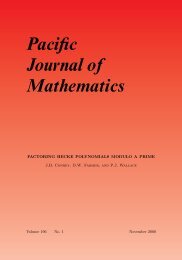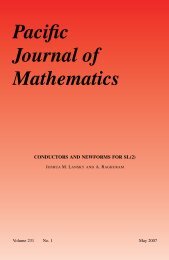Chain conditions in free products of lattices with infinitary ... - MSP
Chain conditions in free products of lattices with infinitary ... - MSP
Chain conditions in free products of lattices with infinitary ... - MSP
Create successful ePaper yourself
Turn your PDF publications into a flip-book with our unique Google optimized e-Paper software.
110 G. GRATZER, A. HAJNAL AND DAVID KELLY<br />
Hence, we can assume that each element <strong>of</strong> Y has a proper representation<br />
a = p(ά), where the same m-polynomial p is used for each<br />
element <strong>of</strong> Y. For notational simplicity, we further assume that,<br />
for some card<strong>in</strong>al m < m, a — (x 0 a<br />
a \ a < m> whenever ae Y, where<br />
o<br />
tfel for all a < m . (Note that x 0 a<br />
Φ xa for a Φ β.)<br />
a β<br />
Consider the sets S = {x a a<br />
a \ a < m } for a e Γ. By the Erdόs-Rado<br />
0<br />
theorem, there is a subset 3Γ' £ 3f <strong>with</strong> | Y' \ — n such that (Sa\a e<br />
Y f<br />
) is a J-system, whose kernel we denote by D. For each ae Y',<br />
the <strong>in</strong>clusion D Q Sa <strong>in</strong>duces a map >fra: D-+ m0 <strong>in</strong> the obvious way.<br />
S<strong>in</strong>ce \{fa\ae Y'}\



